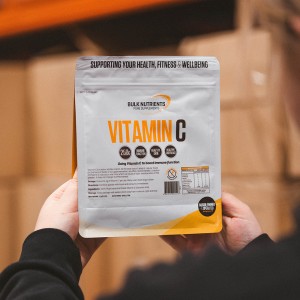Can Supplements Like Vitamin C Help Me When I’m Sick?
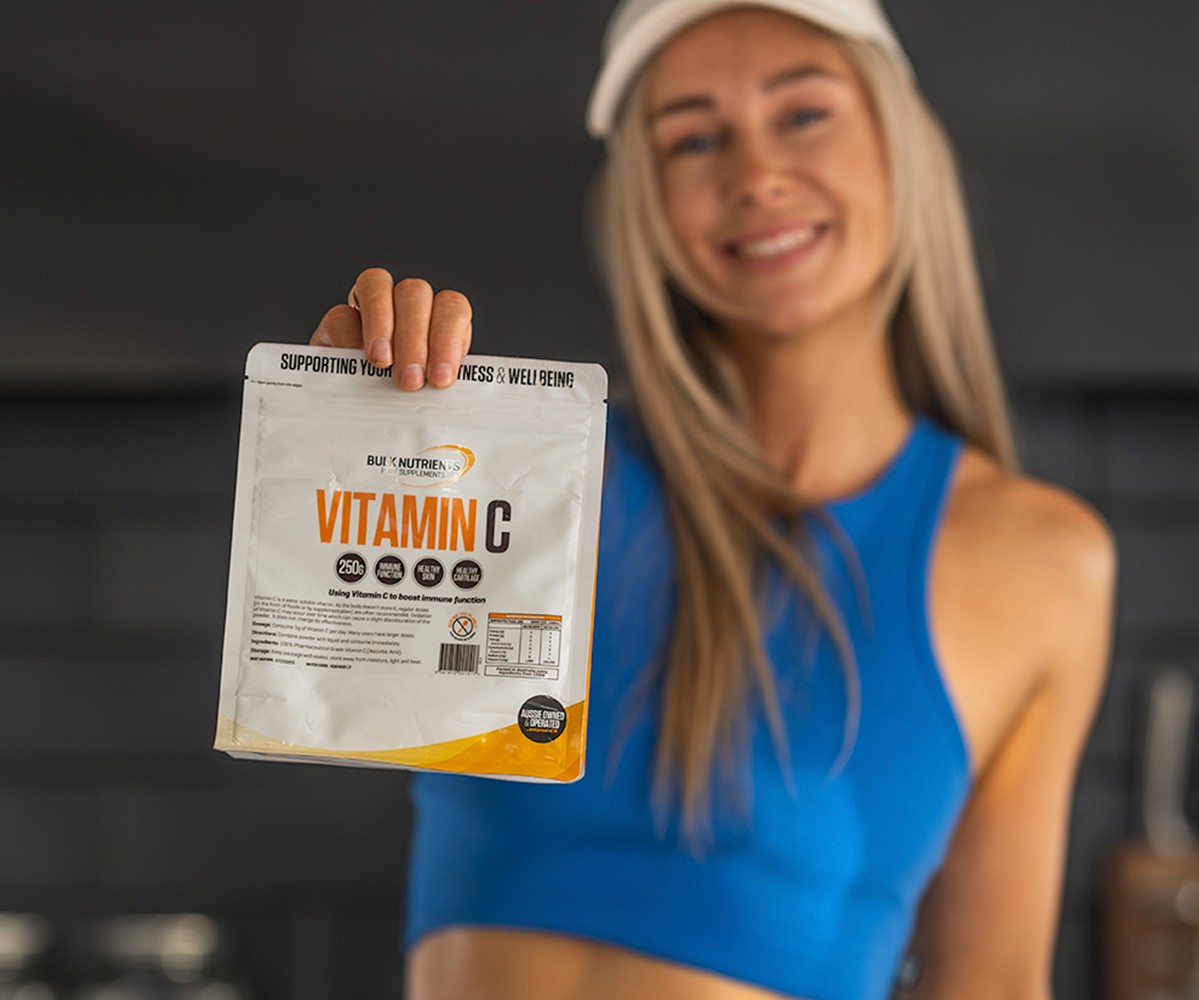
Does Vitamin C help me get better faster?
Vitamin C, also known as ascorbic acid, has long been known to be critical to our wellbeing. It's an essential nutrient required for many processes in the body and must be eaten or supplemented with because it can't be synthesised in the body. It plays a key role in bone formation, healthy gums, and wound healing.
But the bulk of our interest is in Vitamin C as an antioxidant that protects our bodies from free radical damage. Vitamin C also:
Vitamin C was first introduced to the world as a way to fight illness in the late 60s, and rather controversially! But since then research has observed it helping prevent and heal colds, with many becoming a strong advocates for it.
One study examined Vitamin C's role in preventing cold and flu symptoms, recruiting 252 students from ages 18 to 30 to form a test group, and 463 students from ages 18 to 32 to form a control group. The researchers tracked the cold and flu symptoms within the test group and compared them to the control group. When both groups reported symptoms of a cold and flu, the following was given:
- Control group: Treated with pain relievers and decongestants.
- Test group: Treated with hourly doses of Vitamin C (1000 mg) for the first 6 hours (and 3 times daily afterwards). Also, those in the test group NOT reporting symptoms were still given 1000 mg of Vitamin C 3 times a day.
In the end, they found the cold and flu symptoms in the test group decreased by 85% in comparison to the control group, following the dose of Vitamin C. The researchers concluded:
"Vitamin C in megadoses administered before or after the appearance of cold and flu symptoms relieved and prevented the symptoms in the test population compared with the control group."
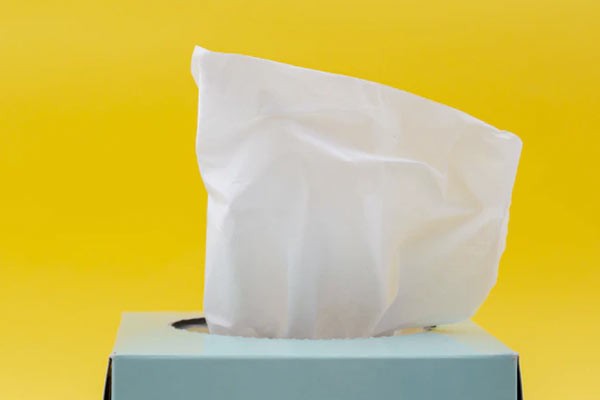
So there very may well be a benefit in taking this dose of vitamin C before and during any cold and flu symptoms. But not all studies have reported a benefit. This study examined 688 adult women and gave them 1 g of Vitamin C per day in order to see what effect it had on preventing the common cold. They found it helped in the average number of chest colds, but there was no evidence of any effect on simple colds.
Other research has found that Vitamin C didn't prevent a cold or flu, but did reduce the severity and duration of symptoms during an infection. But a review into 31 studies found that 1-2 grams of vitamin C daily did in fact reduce the duration of a cold in children by 18% and 8% in adults.
So whilst results may vary, and more research required, we can at least expect to see some benefit according to current research; consuming Vitamin C can only be beneficial.
Moreover, larger doses of vitamin C haven't always been contained to just potentially treating or preventing colds and flu. Vitamin C has also been widely used in the treatment of a significant number of disorders such as:
- Diabetes.
- Atherosclerosis.
- Cataracts.
- Glaucoma.
- Macular degeneration.
How much Vitamin C should I have every day?
The below table outlines exactly how much you need:
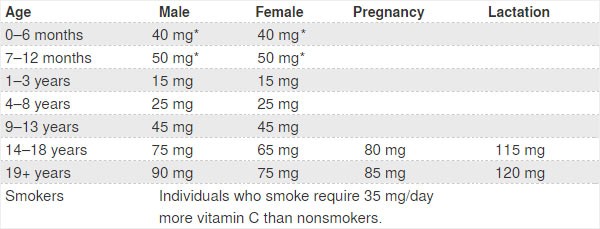
But of course, when symptoms strike, 1-2 grams of Vitamin C daily is acceptable. However, if you feel any side effects like cramps, nausea, and/or diarrhea (which have been reported previously) then it might be wise to revert back to the recommendations in the table above.
Vitamin C in your diet: What foods are high in Vitamin C?
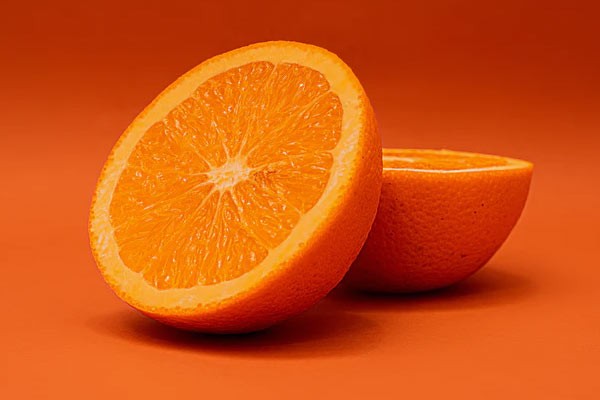
The table below outlines how much vitamin C you get from foods high in essential nutrients. Keep in mind that cooking the below foods reduces the vitamin C content, as Vitamin C is water-soluble and thus destroyed by heat.
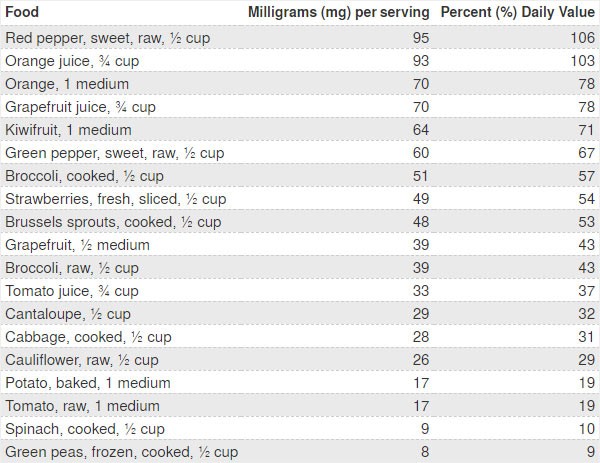
Vitamin C supplements: For health and wellbeing
Getting enough Vitamin C every day can be challenging, so a supplement can be an easy and convenient way of getting enough.
Our Bulk Nutrients Vitamin C supplement contains a healthy 1 gram of the essential nutrient, to ensure you get enough from just one serving -- particularly during this cold and flu season!

The bottom line is that Vitamin C may help you prevent and treat a cold or flu.
Whilst the research is varied and more may be needed, there's strong evidence that Vitamin C reduces cold and flu durations, and that taking it can only be beneficial.
1 gram a day is perfect during peak cold and flu periods, as it may just help you get back to strength faster!
Further reading: Can a sauna help you fight off a cold and How to stay motivated to train in winter.

Ben Crowley, founder of Australia's top sports supplement brand, Bulk Nutrients, combines two decades of industry experience with a commitment to employee work-life balance and career growth.
A firm believer in quality, Ben founded Bulk Nutrients to provide affordable, high-quality products, even amid global challenges.
Apart from business, he enjoys family time, outdoor activities, and adrenaline-charged car projects.
More about Ben CrowleyReferences:
- Chambial S, Dwivedi S, Shukla KK, John PJ, Sharma P. Vitamin C in disease prevention and cure: an overview. Indian J Clin Biochem. 2013;28(4):314-328. doi:10.1007/s12291-013-0375-3
- Dunitz JD. Linus Carl Pauling. 28 February 1901–19 August 1994. Biographical Memoirs of Fellows of the Royal Society. 1996;42:316–8.
- Gorton HC, Jarvis K. The effectiveness of vitamin C in preventing and relieving the symptoms of virus-induced respiratory infections. J Manipulative Physiol Ther. 1999 Oct;22(8):530-3. doi: 10.1016/s0161-4754(99)70005-9. PMID: 10543583.
- Elwood PC, Lee HP, St Leger AS, Baird M, Howard AN. A randomized controlled trial of vitamin C in the prevention and amelioration of the common cold. Br J Prev Soc Med. 1976;30(3):193–196.
- Hemilä H, Chalker E. Vitamin C for preventing and treating the common cold. Cochrane Database Syst Rev. 2013 Jan 31;2013(1):CD000980. doi: 10.1002/14651858.CD000980.pub4. PMID: 23440782; PMCID: PMC8078152.
- Weinstein M, Babyn P, Zlotkin S. An orange a day keeps the doctor away: scurvy in the year 2000. Pediatrics 2001;108:E55.
- Institute of Medicine. Food and Nutrition Board. Dietary Reference Intakes for Vitamin C, Vitamin E, Selenium, and Carotenoids. Washington, DC: National Academy Press, 2000.
- Rumbold A, Ota E, Nagata C, Shahrook S, Crowther CA. Vitamin C supplementation in pregnancy. Cochrane Database Syst Rev. 2015 Sep 29;(9):CD004072. doi: 10.1002/14651858.CD004072.pub3. PMID: 26415762.
- U.S. Department of Agriculture, Agricultural Research Service. FoodData Central, 2019. https://ods.od.nih.gov/factsheets/VitaminC-HealthProfessional/
